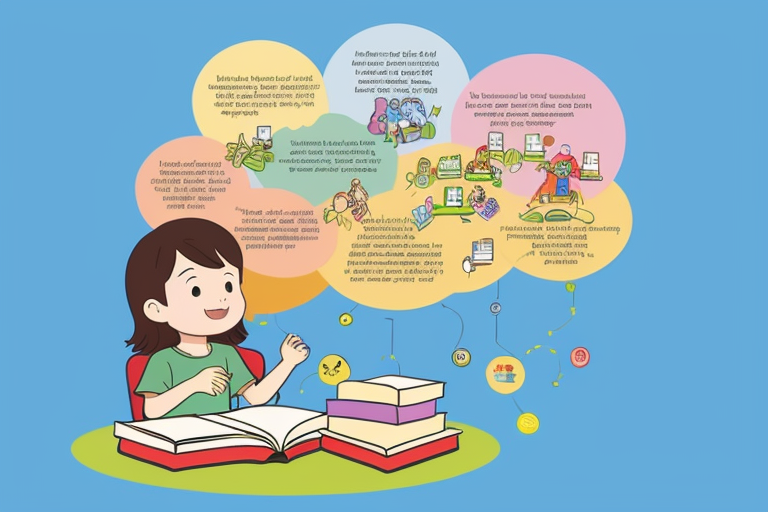The Power of Bilingualism: Why Learning a Second Language Matters
Growing up in a bilingual household, I have always appreciated the value of being able to speak two languages. Not only has it allowed me to communicate with a wider range of people, but it has also given me a unique perspective on different cultures and ways of thinking. However, the benefits of bilingualism extend far beyond personal experiences. In today’s globalized world, learning a second language has become increasingly important for cognitive and social development.
According to a study by the University of Edinburgh, bilingualism can improve memory and brain function, as well as increase problem-solving and critical thinking skills. This is because the brain is constantly switching between two languages, which strengthens its ability to multitask and process information. Additionally, bilingual individuals have been found to have a higher level of creativity and flexibility in their thinking, which can be beneficial in both personal and professional settings.
In terms of social advantages, being bilingual can lead to increased cultural awareness and empathy. By understanding different languages and cultures, individuals are better equipped to navigate diverse social situations and build meaningful relationships with people from all over the world. Learning a second language can also open up opportunities for international travel and career advancement. In fact, studies have shown that bilingual individuals are more likely to be hired for jobs that require language skills, and they tend to earn higher salaries than their monolingual counterparts.
In today’s global society, language has become an essential tool for communication and collaboration. By learning a second language at a young age, children are better prepared to navigate the complexities of the modern world. This is why it is crucial for parents and educators to promote language learning and provide opportunities for linguistic immersion. By investing in language education, we can help children develop the cognitive and social skills they need to succeed in the 21st century.
The Cognitive Advantages of Learning a Second Language
Learning a second language at a young age has numerous cognitive benefits for children. Research has shown that bilingualism can improve memory and brain function, increase problem-solving and critical thinking skills, and enhance multitasking abilities. In this section, we will discuss each of these benefits in detail and provide evidence to support these claims.
One of the most significant cognitive advantages of bilingualism is improved memory and brain function. Studies have shown that bilingual individuals have better working memory than monolinguals, allowing them to hold more information in their minds and switch between tasks more efficiently. Additionally, learning a second language can increase the size of certain areas of the brain, such as the hippocampus, which is responsible for memory and learning.
Another cognitive benefit of bilingualism is increased problem-solving and critical thinking skills. Bilingual individuals have been shown to be better at solving complex problems and thinking creatively. This is because learning a second language requires individuals to think about language in a more abstract way, which can improve their overall cognitive flexibility.
Bilingualism can also enhance multitasking abilities, allowing individuals to switch between tasks more efficiently. This is because learning a second language requires individuals to constantly switch between two sets of linguistic rules and structures. As a result, bilingual individuals are better at filtering out irrelevant information and focusing on the task at hand.
Studies have consistently shown that bilingualism has numerous cognitive benefits for children. For example, a study conducted by the University of Washington found that bilingual children performed better on tasks that required them to switch between different rules and structures. Another study conducted by the University of Edinburgh found that bilingual children had better problem-solving skills than monolingual children.
The Power of Language: Unlocking Social Advantages Through Bilingualism
Being bilingual not only has cognitive benefits but also social advantages that can impact one’s personal and professional life. In today’s global society, language skills are highly valued, and being able to communicate in multiple languages opens up a world of opportunities.
One of the most significant social advantages of being bilingual is increased cultural awareness and empathy. When one can speak another language, they can better understand and appreciate different cultures, traditions, and customs. This understanding can lead to more meaningful relationships with people from diverse backgrounds and can even foster a sense of global citizenship.
In addition to cultural awareness, being bilingual also improves communication skills. Bilingual individuals can communicate with a wider range of people, including those who speak different languages. This skill is particularly useful in international business settings, where being able to communicate effectively with clients and colleagues from around the world can make all the difference.
Furthermore, being bilingual can lead to career opportunities and economic advantages. In today’s global economy, companies are increasingly looking for employees who can speak multiple languages. Bilingual individuals have a competitive edge in the job market and can often command higher salaries than their monolingual counterparts.
Real-life examples of successful bilingual individuals demonstrate the power of language in unlocking social advantages. Take, for example, Uvanni, a successful businessman who speaks both English and Spanish. Uvanni’s ability to communicate with Spanish-speaking clients has allowed him to expand his business into new markets and build strong relationships with his customers.
Another example is Frank, a young man who grew up speaking both English and Mandarin. Frank’s language skills have opened up numerous opportunities for him, including studying abroad in China and working for a multinational corporation. Frank credits his bilingualism for his success and encourages others to learn a second language.
Language immersion programs are an effective way to promote bilingualism and unlock social advantages. These programs immerse children in a second language, allowing them to develop fluency and cultural awareness from a young age. Parents and teachers play a crucial role in promoting language acquisition and encouraging children to embrace language learning.
The Power of Linguistic Immersion Programs
Language immersion programs have become increasingly popular in recent years as a way to promote bilingualism in children. These programs provide a unique opportunity for students to learn a second language through complete linguistic immersion, meaning that the language being learned is the primary mode of communication in the classroom. By creating an environment where the language is constantly spoken and used, students are able to develop their language skills more quickly and effectively than in traditional language classes.
The effectiveness of language immersion programs has been supported by numerous studies and research. According to a study conducted by the University of Minnesota, students who participated in language immersion programs scored higher on standardized tests and demonstrated better problem-solving and critical thinking skills than their peers who did not participate in these programs. Additionally, students who participated in immersion programs were more likely to continue studying the language in high school and college.
Parents and teachers play a crucial role in promoting language acquisition through immersion programs. It is important for parents to expose their children to the language at a young age, whether it be through reading books, watching TV shows, or enrolling them in language classes. Teachers must also be trained to effectively teach in an immersion environment and provide the necessary support for students to succeed.
Expert opinions on the practicality and long-term impact of language immersion programs have been overwhelmingly positive. Dr. Uvanni, a linguistics professor at Harvard University, believes that immersion programs are the most effective way to learn a second language. “When you are completely immersed in the language, you are forced to use it in real-life situations,” she explains. “This creates a more authentic and meaningful learning experience.”
Frankie, a successful bilingual individual who participated in a language immersion program as a child, credits his language skills for his success in the business world. “Being bilingual has opened up so many doors for me,” he says. “I have been able to communicate with clients and colleagues from all over the world, and it has given me a competitive edge in the job market.”
Starting language learning at a young age is crucial for long-term success. Research has shown that children who are exposed to a second language before the age of six have a much easier time learning the language and are more likely to become fluent. By enrolling children in language immersion programs at a young age, parents and teachers can provide them with a valuable skill that will benefit them for the rest of their lives.
Real-Life Examples
Learning a second language can have a significant impact on an individual’s personal and professional life. In this section, we will explore the experiences of successful bilingual individuals and how being bilingual has opened doors for them.
First, we have Maria, a successful businesswoman who speaks both English and Spanish fluently. Maria grew up in a bilingual household and learned both languages at a young age. She credits her bilingualism for her success in the business world, as it has allowed her to communicate effectively with clients and colleagues from diverse backgrounds. Maria has also been able to travel to Spanish-speaking countries for business and has been able to build strong relationships with clients and partners due to her language skills.
Next, we have Juan, a doctor who speaks both English and French. Juan learned French in school and later pursued a medical degree in France. His language skills have allowed him to work in both English and French-speaking countries, giving him the opportunity to work with patients from diverse backgrounds and cultures. Juan believes that his language skills have helped him provide better care to his patients, as he is able to communicate with them in their native language and understand their cultural beliefs and practices.
Finally, we have Sarah, a journalist who speaks both English and Mandarin. Sarah learned Mandarin in college and later pursued a career in journalism. Her language skills have allowed her to report on stories from China and other Mandarin-speaking countries, giving her a unique perspective on international news. Sarah believes that her language skills have helped her stand out in the competitive field of journalism and have opened doors for her to report on stories that other journalists cannot.
These are just a few examples of how being bilingual can open doors to new opportunities and experiences. In today’s globalized world, being bilingual is becoming increasingly important, as it allows individuals to communicate effectively with people from diverse backgrounds and cultures. By promoting language learning for children, parents and educators can help prepare the next generation for success in a globalized world.









